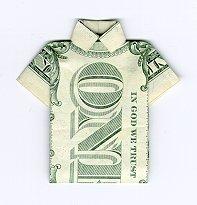
DCA gains its popularity especially by the mutual fund (unit trust) investors since it is promoted by the interested parties. What is DCA? One might ask. It is a systematic and regular investment of a fixed amount of money regardless of the price level, meaning that it does not bother the up and down of the market. Investor will get more units when prices are down and fewer units when prices are up.
The promoters claim that by adopting this system, it will reduce investment risk because the risk already averaging out. The most wonderful thing is it needs not your close monitoring to the market. Sound simple and great, isn’t it?
Before we jump into a conclusion whether DCA is practical is a real world or not. Let’s examine what’s your reaction for this scenario:
There are 10 different stalls selling local cuisine. You are having your dinner every evening and you have a freedom to choose which stall you will have your dinner. From the beginning, you might rotate your dinner among these stalls because you want to try something new and you want to know which is the best. After a while, you know exactly Johnny Stall is the best with a reasonable price tag at $ 10 for a dinner. You do not choose others because you know well that for some stalls, the foods might not fresh, the cleanliness of the stalls is not accepted and so forth. Thus, you will go to Johnny Stall for your dinner every evening.

One day, as regular as your previous evenings, you have your dinner in Johnny Stall. After dinner, you pull out $ 10 for the bill. Surprisingly, Johnny presents the bill with a price tag of $ 20! Being curious you ask him the reason. He answer: “I’m not in the good mood today.”
The next day, you go to the same stall and after a dinner, you pull out $ 20 for a bill. This time, Johnny only charges you $ 5.
After several times, you know well that Johnny stall’s dinner is the best and the quality remain the same. The only difference is its bill – it depends to the mood of Johnny. In bad mood times, he would charge you above fair value of $ 10 which can be as high as $ 20. While in his good mood times, he would present you with a same quality dinner but in discounted price, could be as low as $ 5. You need not be a rocket scientist to know when is the best time to have your dinner, don’t you?
We need to have a dinner every evening and thus we have no choice to pay for the bill asked by Johnny. But, for a rational intelligent investor, there is no timeframe for him to invest. It could be no investment made at all for the entire 5 years and when opportunities arise, there could be 5 or more investments made in a year. It all depends to the market – Market is your servant, do not reverse it.

By adopting DCA, it is just insane to invest in whatever price tag. When in real life, you definitely would not buy something when the price tag is far beyond a fair value, will you do it in your investment? When promoters claim that by adopting DCA, it reduces investment risk, so does the return rate of the investment result.
No comments:
Post a Comment